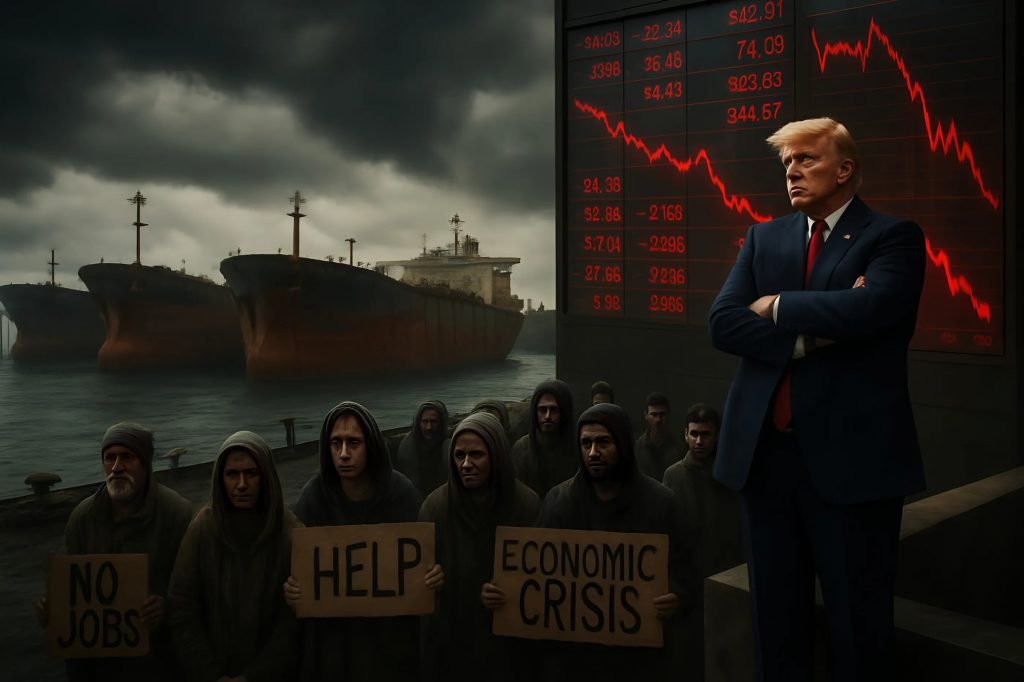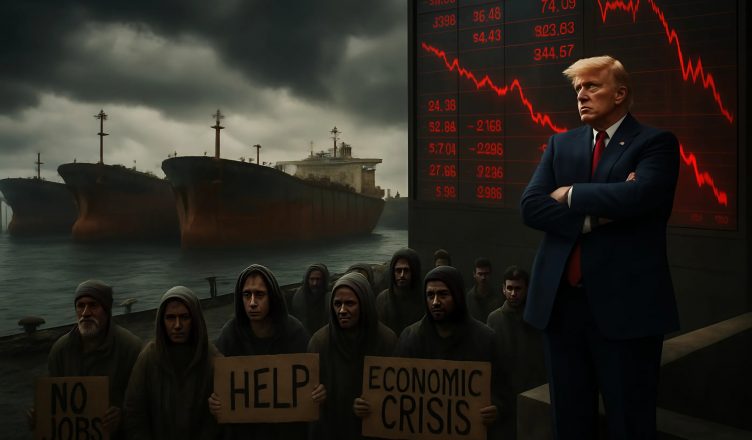The United States is on the brink of a new financial crisis — and this time, the storm has a familiar face. Former president Donald J. Trump, a figure who has already reshaped American politics, is now being associated with a looming economic uncertainty that threatens to shake the foundation of the global market. Whether as instigator, symbol, or strategic wildcard, Trump’s shadow looms over a volatile economic landscape where politics, policy, and perception collide.
This isn’t the first time America has faced a fiscal reckoning. But what makes the current climate different is the degree to which one man’s presence, rhetoric, and influence have become inextricably tied to the country’s financial stability.
How Did We Get Here?
To understand the emerging crisis, we have to follow the threads: inflationary pressure, massive national debt, rising interest rates, and a deeply polarized Congress unable — or unwilling — to implement long-term fiscal reform. Add to that record-breaking government spending, a fragile housing market, and tension in global supply chains, and the result is a high-stakes economic scenario.
But the factor that has many economists and political analysts raising alarm is Donald Trump’s potential return to power — and more importantly, the perception of what that return might mean for American financial institutions and global investors.
Market Volatility and the Trump Effect
Trump’s influence on the economy is not just theoretical — it’s measurable. During his presidency, markets often swung wildly based on his tweets alone. Now, as he dominates the Republican primary field and positions himself for a potential second term, investors are once again recalibrating risk.
Why? Because Trump represents unpredictability — and markets hate unpredictability.

“Trump’s policy positions change based on crowd reactions. That level of uncertainty makes it almost impossible to build long-term forecasts,” said one hedge fund manager in a recent Financial Times interview.
Wall Street is already bracing for potential shifts: withdrawal from international trade deals, renewed tariffs, deregulation in sectors like energy and finance, and possibly even pressure on the Federal Reserve to prioritize political interests over monetary discipline.
Debt, Deficits, and Disruption
One of the central worries lies in the national debt, which recently crossed $34 trillion. Trump’s previous administration contributed trillions through tax cuts and increased defense spending — decisions that lacked offsetting revenue and increased the federal deficit.
Many experts fear a repeat scenario. Trump has signaled interest in further tax reductions and a more aggressive, confrontational stance toward America’s trading partners, particularly China and the EU — steps that could drive up inflation, weaken the dollar, and erode international trust in U.S. financial commitments.
But more than policy, the concern is approach: Trump’s tendency to govern by disruption, where political theater takes precedence over economic discipline, can lead to shocks that ripple far beyond Washington.
Political Instability as Economic Risk
Trump is not just a politician — he’s a movement. His base is loyal, vocal, and largely distrustful of traditional institutions. That support gives him power, but also poses a threat to institutional stability. Should Trump return to power and attempt to purge key economic agencies of dissenting voices — from the Treasury to the Fed — the result could be a confidence crisis.
The mere perception that economic levers are being pulled for political gain could trigger capital flight, investor hesitation, and potentially a downgrading of U.S. creditworthiness. We’ve already seen this before: in 2011, during a debt ceiling standoff, America’s credit rating was downgraded for the first time in history. That scenario could repeat — or worsen — under a government in disarray.
A Global Domino Effect
The United States is still the world’s largest economy. When it trembles, the world shakes. Trump’s return to the political spotlight has already prompted questions among foreign governments and investors. Will the U.S. continue to honor international economic agreements? Will it retreat into economic nationalism? Will it target allies with punitive trade measures again?
Each question raises new risks. Europe, already facing economic headwinds, cannot afford a trade war with the U.S. China, observing closely, could seize the moment to expand influence in regions where American credibility weakens. Smaller economies — particularly in the global south — would be vulnerable to any American economic turbulence.
Is a Crisis Inevitable?
Not necessarily — but what makes the situation dangerous is that the crisis may not come from fundamentals alone, but from a narrative of uncertainty.
Trump embodies contradiction: pro-growth but chaotic, anti
